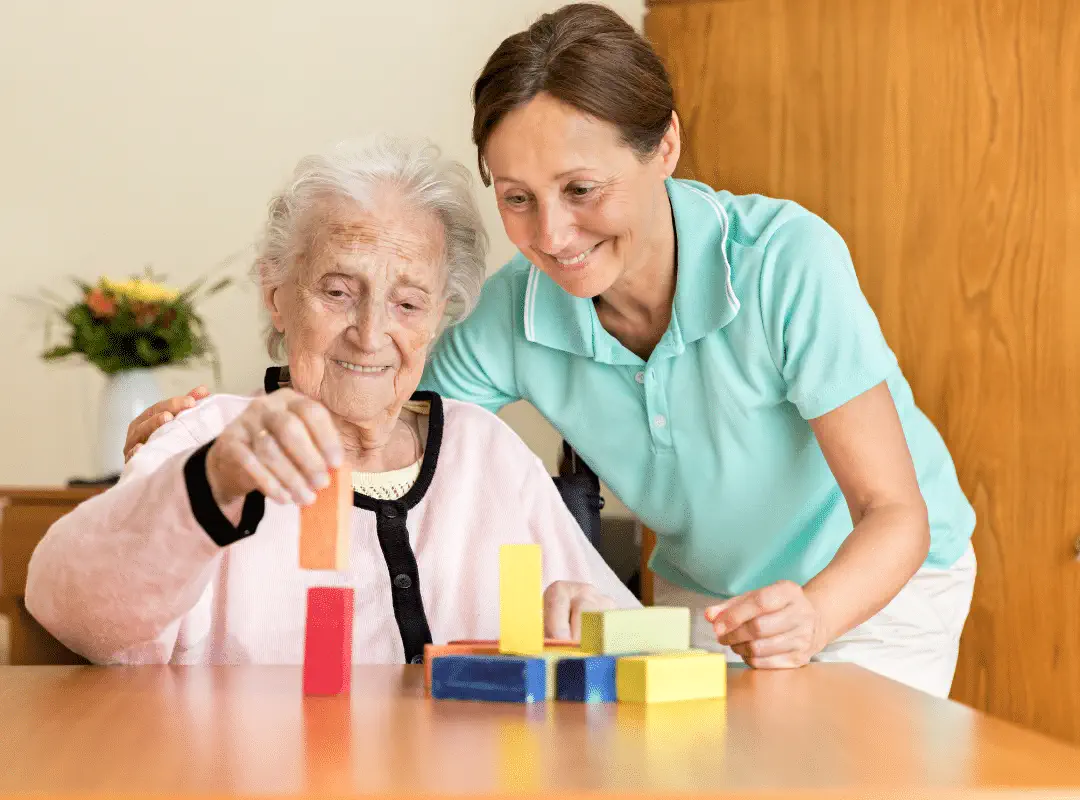
7 Best Nostalgic Activities for Dementia Patients
Nostalgic activities for dementia patients are one of the most effective ways to connect and help these people. Dementia causes a gradual loss of a person’s cognitive abilities, which are crucial for daily functioning. When a person has dementia, they may have difficulty with memory, thinking, reasoning, or even language. The loss of these skills can make it difficult for people with dementia to perform everyday activities.
While there is no cure for dementia, some treatment options can help reduce symptoms and improve quality of life. For example, activities for older adults with dementia can help stimulate the brain. In this article from Human Health Mag website, we will discuss some useful memory activities to help these people.
Reminiscence Therapy is a Helpful Activity for Seniors With Dementia
Reminiscence therapy is a fun way to connect with someone with Alzheimer’s or dementia by reminiscing or sharing memories from the past. With dementia, people often lose short-term memory, but they are often still able to recall old memories. The goal of reminiscence therapy is to help seniors with dementia feel valued, fulfilled, and at peace by reminiscing about happy times.
The positive feelings that come from sharing pleasant memories can reduce stress, boost mood, reduce restlessness, and minimize challenging behaviors like wandering, anger, and more. To help trigger memories, you can use free short stories for dementia patients.
7 Nostalgic Activities for Dementia Patients
Nostalgic activities for dementia patients can connect with different parts of the brain, so it’s helpful to do activities that stimulate different senses. Use these ideas to spark your dementia patient’s imagination and think of other ways to reminisce that are specific to your senior’s interests. Here are some practical and memorable activities.
1- Mental and social activities
Hobbies for elderly with dementia can have many benefits for these people. Participating in mental activities such as solving puzzles, reading books, playing brain games, and social interactions can help maintain brain function. These activities are among the activities that most people did when they were young and before they developed dementia. Therefore, doing these activities again can stimulate the minds of these people.
2- Physical exercises
Regular exercise helps improve blood circulation in the brain and reduce the risk of cardiovascular diseases. It is better for people with Alzheimer’s to do exercises such as yoga or walking that they used to do.
3- Playing nostalgic games
Games such as backgammon and puzzles that older people used to play when they were young can be useful in improving and strengthening memory in people with Alzheimer’s.

4- Listen to your favorite music
Music helps people remember and connect with past feelings and experiences. This is why it is often recommended for people with Alzheimer’s or dementia. You can play their favorite songs, sing a little, or play music with simple instruments like shakers, bells, tambourines, or a DIY drum.
5- Look at memorable photos or magazines
Photos or mementos that bring back memories are another great way to reminisce. Photos of family, friends, and important life events are great choices. Photos of things that remind them of their favorite hobbies are also great. For example, someone who loves gardening might enjoy looking at a gardening magazine or plant catalog. Someone who loves cooking might love a gourmet magazine with beautiful food photos. The same goes for sports, crafts, historical events, etc.
6- Smell familiar scents
Smell is a powerful way to access memories. You can make scent cards or jars using spices or essential oils to remind them of favorite foods or places, like freshly baked cookies or the pine forest near their childhood home. Taste is another great way to bring back fond memories.
7- Tactile activities
Familiar tactile activities like drawing, painting, pottery, knitting, sewing, or other crafts can trigger old memories. Doing things like touching brushes, swirling watercolors, drawing with chalk, squeezing yarn, or playing with fabrics can evoke strong memories. Another way to use touch is through objects. Perhaps wearing or touching a favorite piece of jewelry or accessory (like a watch or necklace) can bring back memories of important life events for these people. Other ideas are to bring out a notable piece of clothing (perhaps a dress or suit) that they will use to dress up or wear to important events.
How to Communicate with People with Dementia
As we said, nostalgic activities for dementia patients can be very helpful for these people and you can connect with them with the help of reminiscence therapy. In fact, Alzheimer’s disease makes it difficult for your loved one to understand others or be understood by others. It can also make them behave in frustrating or irritating ways. In this regard, it is very important to remember that the disease is the cause of their behavior and they are not doing it intentionally.
Trying to communicate with dementia patients can be really challenging and may test your patience. As a result, it is important to learn how to deal with communication problems that may arise when interacting with your loved one. You should learn the tips of dementia care for elderly quality of life. Keep in mind that people with dementia have difficulty understanding what people are saying to them; however, they are very sensitive to the tone in which people speak to them. Talking to an Alzheimer’s patient in an agitated tone can irritate them. A calm voice can calm them down. So try to speak in the most positive way possible.

Benefits of Nostalgic Activities for Dementia Patients
Nostalgic activities for dementia patients can give seniors with dementia a sense of accomplishment and confidence because it is something they are still able to do. It gives them a chance to talk and share something meaningful rather than just listen to others talk. Talking about happy memories from the past can also bring joy, which is especially helpful if your older adult is having trouble with daily life – it helps them cope with stress.
Of course, there is a difference between reminiscing and remembering, reminiscing does not mean asking someone to remember something from the past. Remembering something specific, even from a long time ago, can be stressful for people with dementia because they are likely to feel pressured or put in their place. In contrast, when a pleasant memory lingers in their mind and they share it with you, they will feel good.
For example, your older sibling may not remember or know how to answer a simple question like “Where did you grow up?” This can make them feel embarrassed or angry. But if you look at old photos, they may spontaneously say, “Oh look, my house is here. My mom used to bake my favorite cookies—chocolate chip—every Saturday.
How to Make Memory Therapy More Successful?
The goal of nostalgic activities for dementia patients is to enjoy your time with your older adult and provide an opportunity for them to talk about any memories that may arise. For best results, plan for a time of day when they are most interested in the activity. For many older adults, this is early in the day. Next, choose a quiet, comfortable place where they can hear and see you well.
You should also keep in mind that you never know what memories will be brought back to the mind of the person with dementia when you reminisce about the past. Sometimes a painful or upsetting memory will surface. This is not necessarily a bad thing, but it is important to respond to the person with kindness and understanding. You know your older adult best, so if something negative comes up, you know best whether it’s best to listen and be supportive or whether it’s wiser to gently guide them to a happier memory so they don’t get stuck in it.
Concluding Remarks
As we have said, nostalgic activities for dementia patients have many benefits for these people. This is a familiar activity for everyone, reminiscing can be very helpful for people with Alzheimer’s disease. This activity can support self-esteem and develop interpersonal skills. Reminiscence therapy can also be a valuable tool for increasing the quality of life and self-esteem of people with Alzheimer’s. In addition, it can be helpful by giving caregivers opportunities to interact more intimately with their loved ones.
When using reminiscence therapy, remember to respect the person’s participation and involvement. Try to encourage participation in any way possible, but if someone does not want to participate in the activity, respect their right to refuse. Their refusal is valid and affirms their right to privacy, autonomy, and power over their situation.
Could you help us make this content even better? What do you love, and what can we improve? Share your thoughts below, feedback is the key to creating better content for you.

Frequently Asked Questions
What Is Dementia?
Dementia is a general term for the loss of memory, language, problem-solving, and other thinking skills. These symptoms are severe enough to interfere with a person’s daily life. Alzheimer’s is the most common cause of dementia. In fact, dementia is not a single disease. It is a general term to describe a set of symptoms that a person may experience if they are living with a variety of brain and neurological diseases, including Alzheimer’s disease.
Who Is Most at Risk for Dementia?
Science shows that the biggest risk factors for dementia are two things we can’t control: age and genetics. Aging is the biggest risk factor for dementia, and the risk doubles every 5 years after age 70. While some lifestyle changes can reduce the risk of dementia, no approach has been shown to completely prevent it.
Is There a Cure for Dementia?
Treatment for dementia depends on the underlying cause. Neurodegenerative dementias, such as Alzheimer’s disease, have no cure, although there are medications that can help protect the brain or manage symptoms such as anxiety or behavioral changes. Research is ongoing to develop more treatment options. Engaging in nostalgic activities may help treat these people.
